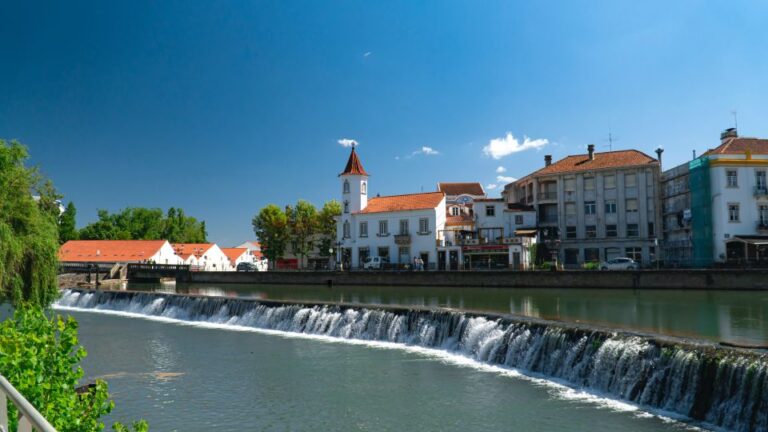Uncover the captivating history and spiritual heritage of ancient Corinth on a private biblical tour from Athens. Explore the remarkably well-preserved ruins, including the temple of Apollo and the Bema where Apostle Paul faced trial, as you explore the city’s rich past. Venture to the towering Akrokorinthos acropolis and the ingenious Diolkos trackway, which allowed ships to be transported overland. Witness the engineering marvel of the Corinth Canal and learn about the region’s fascinating blend of ancient and Byzantine influences. This comprehensive tour promises to transport you back in time and leave you with a deeper understanding of Corinth’s enduring significance.
Key Points
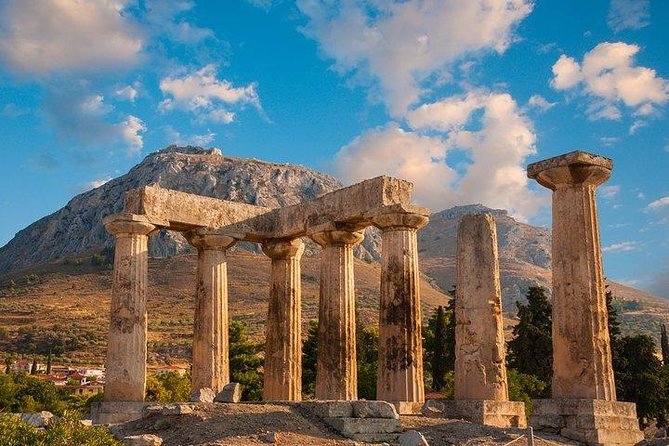
- Explore the well-preserved ruins of ancient Corinth, including the Doric temple of Apollo and the Bema where St. Paul faced trial.
- Visit the fortified acropolis of Akrokorinthos and discover its Byzantine and Frankish heritage, offering a glimpse into the region’s strategic importance.
- Discover the remains of the ancient port of Kenchreai, where Paul is believed to have stopped, and learn about the ingenious Diolkos system for overland ship transport.
- Visit the Byzantine Church of St. Paul, believed to be on the site where the apostle preached, and learn about the early Christian history of Corinth.
- Experience the impressive engineering feat of the Corinth Canal, a vital shipping route that connects the Gulf of Corinth with the Saronic Gulf.
Exploring Ancient Corinth

The tour begins with a visit to the ancient city of Corinth, where visitors can explore the remarkably well-preserved ruins that span centuries of history. Wandering through the site, you’ll come across the impressive Doric temple of Apollo, the Bema where St. Paul faced trial, and the remnants of the ancient agora or marketplace.
You’ll also see the port of Kenchreai, where Paul is believed to have stopped on his way to Ephesus. The towering Acrocorinth, the ancient fortified citadel, offers panoramic views over the entire region and a glimpse into Corinth’s strategic importance in antiquity.
This in-depth exploration of the ancient city provides a unique window into the world of St. Paul and the early Christian church.
Visiting Akrokorinthos
After exploring the ancient ruins of Corinth, the tour takes visitors up to the summit of Akrokorinthos, the impressive fortified acropolis that towers over the city. Perched atop a rocky outcrop, this centuries-old citadel commands sweeping views of the surrounding countryside and the Corinthian Gulf below. Guests can wander the remarkably well-preserved Byzantine and Frankish ruins, seeing Corinth’s rich historical legacy.
| Emotion | Description | Significance |
|---|---|---|
| Awe | The imposing presence of Akrokorinthos, looming high above the ancient city | Conveys the grandeur and power of this ancient fortification |
| Wonder | Discovering the remarkably well-preserved ruins of Byzantine and Frankish eras | Allows visitors to step back in time and imagine the vibrant history of Corinth |
| Appreciation | Taking in the sweeping vistas from the acropolis’s summit | Reinforces the strategic importance of this location and its role in Corinth’s past |
Discovering Kenchreai Port
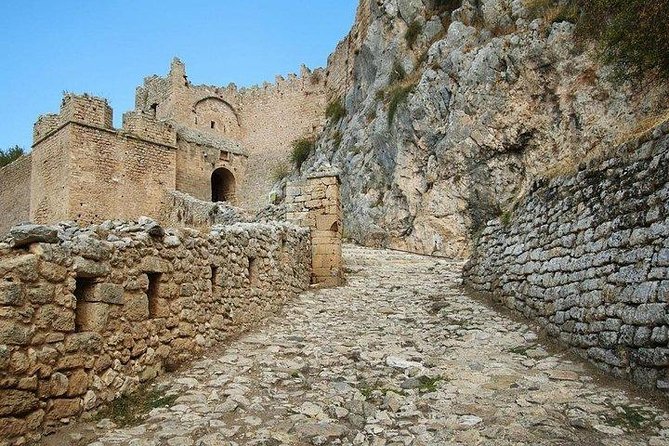
Next, the tour takes visitors down to the port of Kenchreai, where St. Paul is believed to have stopped during his travels.
This historic harbor, located along the Saronic Gulf, served as one of Corinth’s two main ports during antiquity.
Guests can explore the remains of the ancient docks and marvel at the engineering feats that facilitated the transfer of goods and people in and out of the city.
Among the highlights is the Diolkos, a paved trackway that allowed ships to be transported overland between the Saronic and Corinthian Gulfs, a remarkable feat of ancient engineering.
Here, travelers can imagine the bustling activity that once filled the port as they wander through its well-preserved ruins.
Witnessing the Diolkos

With the port of Kenchreai explored, visitors then turn their attention to the impressive Diolkos – a remarkable example of ancient engineering that allowed ships to be transported overland between the Saronic and Corinthian Gulfs. This 6-kilometer-long stone-paved road, dating back to the 6th century BC, was used to bypass the treacherous journey around the Peloponnese peninsula. Traversing the Diolkos, guests can imagine the ingenious system of grooved stone tracks and rollers that facilitated the movement of ships across the isthmus.
| Reaction | Awe | Wonder | Appreciation | Reverence |
|---|---|---|---|---|
| Diolkos | An ancient engineering marvel | A testament to human ingenuity | A practical solution to a geographic challenge | A glimpse into the sophisticated technology of the ancient world |
Witnessing this remarkable achievement firsthand is a humbling and inspiring experience, leaving visitors with a deeper understanding of the technical prowess of the ancient Greeks.
Observing the Bema
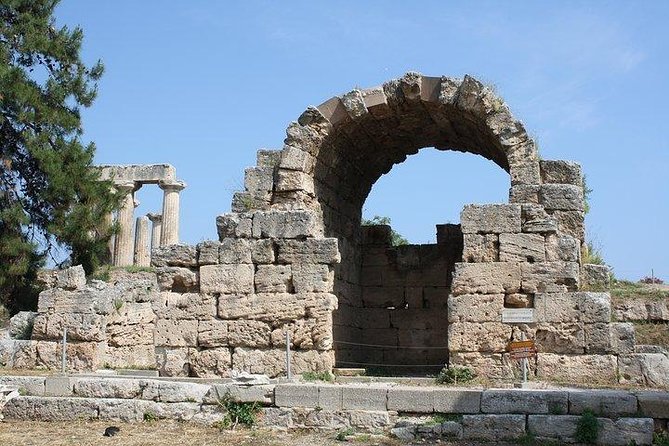
Upon reaching the Bema, visitors are transported back to the very spot where the Apostle Paul once stood trial before the Roman proconsul Gallio. This ancient raised platform, located in the heart of the ancient agora, served as the seat of judgement where Paul defended his teachings and was ultimately acquitted of the charges brought against him.
Visitors can envision the scene as they stand on the Bema, gaining a deeper understanding of the pivotal moment in Paul’s life and the early Christian movement. The well-preserved ruins of the Bema offer a tangible connection to the biblical narrative, allowing guests to enjoy the history and witness firsthand the place where Paul’s fate was decided.
Byzantine Church of St. Paul

After exploring the ancient Bema, visitors can turn their attention to the Byzantine Church of St. Paul, which stands as a testament to the enduring legacy of the Apostle’s teachings in the region.
This well-preserved structure dates back to the 5th century AD and is believed to have been erected on the site where Paul preached to the Corinthians during his second missionary journey.
The church’s distinctive architectural features and religious artifacts offer visitors a glimpse into the early Christian history of Corinth.
The Byzantine Church of St. Paul provides a unique opportunity to take in the rich spiritual heritage of this ancient city and its connection to the life and work of the influential Apostle.
Corinth Canal Tour

The Corinth Canal, a vital shipping route that connects the Gulf of Corinth with the Saronic Gulf, is a highlight of this private tour. Traversing this 4-mile-long, 70-foot-deep canal offers a captivating glimpse into the region’s impressive engineering feats and strategic maritime significance. As your driver navigates this man-made wonder, you’ll learn about its history, from ancient plans to its eventual completion in the late 19th century. The contrast between the towering cliffs and the narrow waterway below makes for a visually striking experience. Whether you’re marveling at the sheer scale of the engineering or simply taking in the scenic beauty, the Corinth Canal is sure to leave a lasting impression.
| Feature | Description | Significance |
|---|---|---|
| Length | 4 miles | Connects the Gulf of Corinth and Saronic Gulf |
| Depth | 70 feet | Allows passage of large ships and vessels |
| History | Proposed in ancient times, completed in 1893 | Reflects the region’s long-standing maritime ambitions |
Tour Inclusions and Exclusions
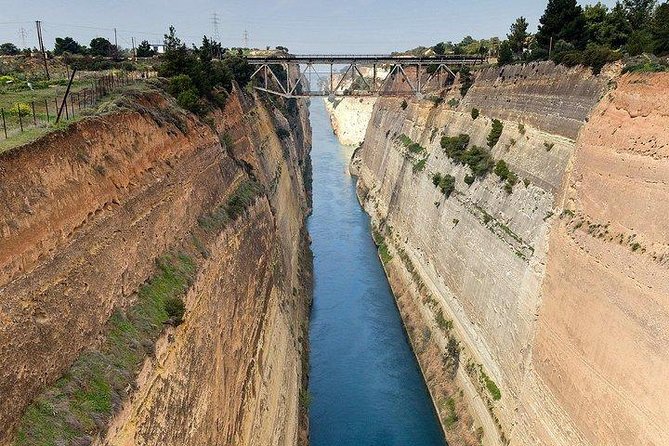
Highlighted in the tour details, the private biblical tour from Athens includes:
- Professional drivers with deep knowledge of history
- Hotel/port pick-up and drop-off service
- Private transportation in an air-conditioned vehicle
- Bottled water
- A lunch option featuring Greek traditional food
The tour also offers the option to book a licensed tour guide, depending on availability.
However, the entrance or admission fees for archaeological sites and the museum aren’t included in the tour price. Plus, gratuities are excluded from the package.
The tour isn’t wheelchair accessible, but infants can be accommodated by sitting on laps, with infant seats available.
Frequently Asked Questions
Can I Customize the Tour Itinerary to Fit My Interests?
Sure, you can customize the tour itinerary to fit your interests. The private nature of the tour allows for flexibility to focus on the sites and topics that interest you most during the experience.
Is the Tour Suitable for Travelers With Mobility Issues?
The tour may not be suitable for travelers with mobility issues, as it’s not wheelchair accessible and involves walking through ancient sites. However, the private nature allows flexibility to accommodate needs where possible.
Do I Need to Book the Tour Guide in Advance?
According to the tour details, a licensed tour guide is available upon request and depending on availability. To ensure a guide is provided, it’s recommended to book the tour guide in advance when making your reservation.
Can I Purchase Souvenirs During the Tour?
Yes, travelers can purchase souvenirs during the tour. Many sites along the route offer opportunities to browse local shops and markets for traditional Greek crafts, artwork, and other keepsakes to take home.
What Is the Cancellation Policy for This Tour?
The cancellation policy allows full refunds for cancellations made at least 24 hours in advance. Cancellations within 24 hours are subject to a 50% fee. There is no refund for no-shows.
Recap
This private biblical tour of ancient Corinth and the Corinth Canal offers a captivating journey into the region’s rich history and spiritual heritage.
Visitors can explore the well-preserved ruins, including the Doric temple of Apollo and the Bema where Apostle Paul stood trial.
The tour also includes the Byzantine Church of St. Paul and the engineering marvel of the Corinth Canal, providing a comprehensive immersion in Corinth’s remarkable past.

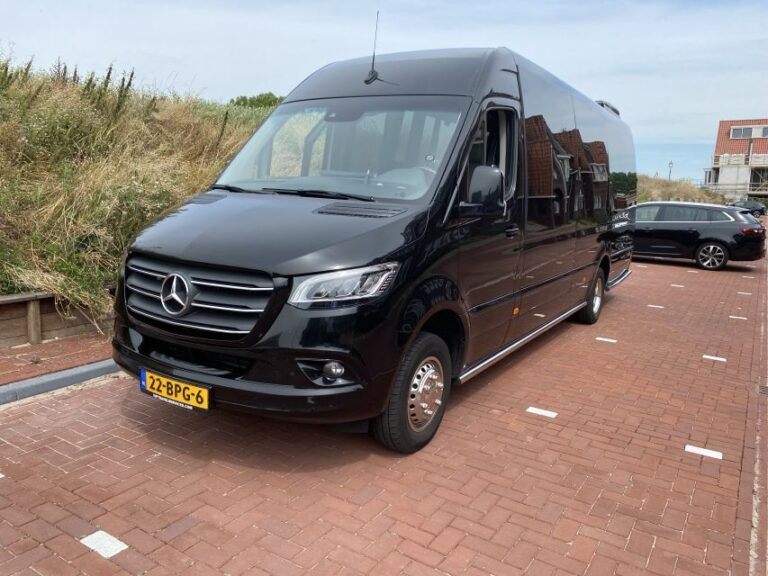

![Culloden, Loch Ness + More [private Tour] Included In The Tour](https://mikestravelguide.com/wp-content/uploads/2024/08/1_culloden-loch-ness-more-private-tour.jpg)
